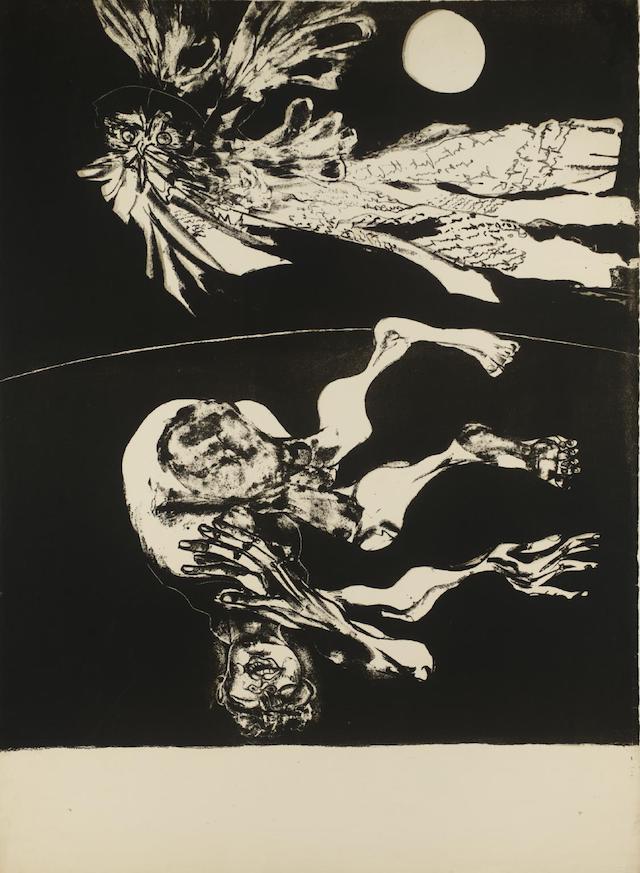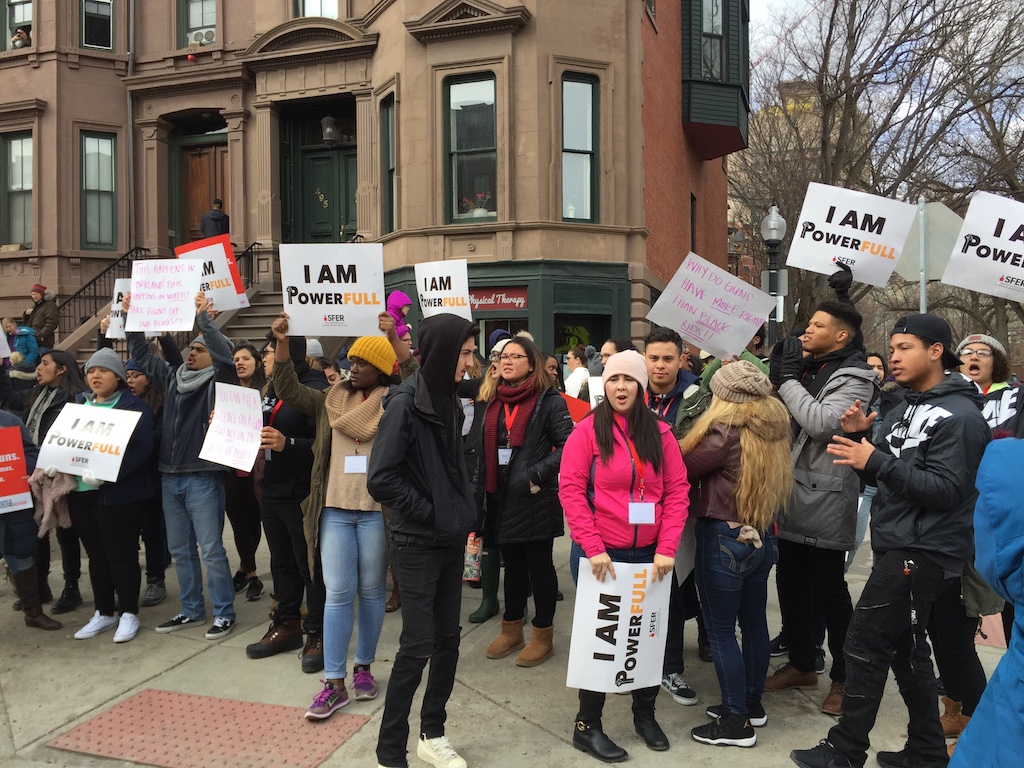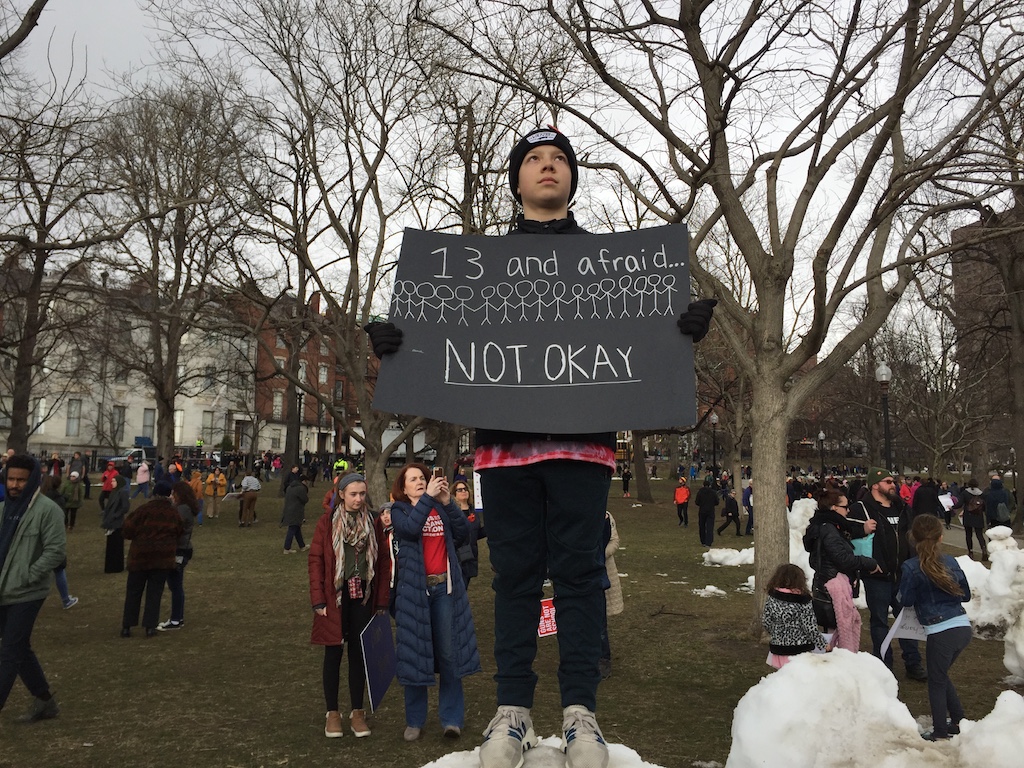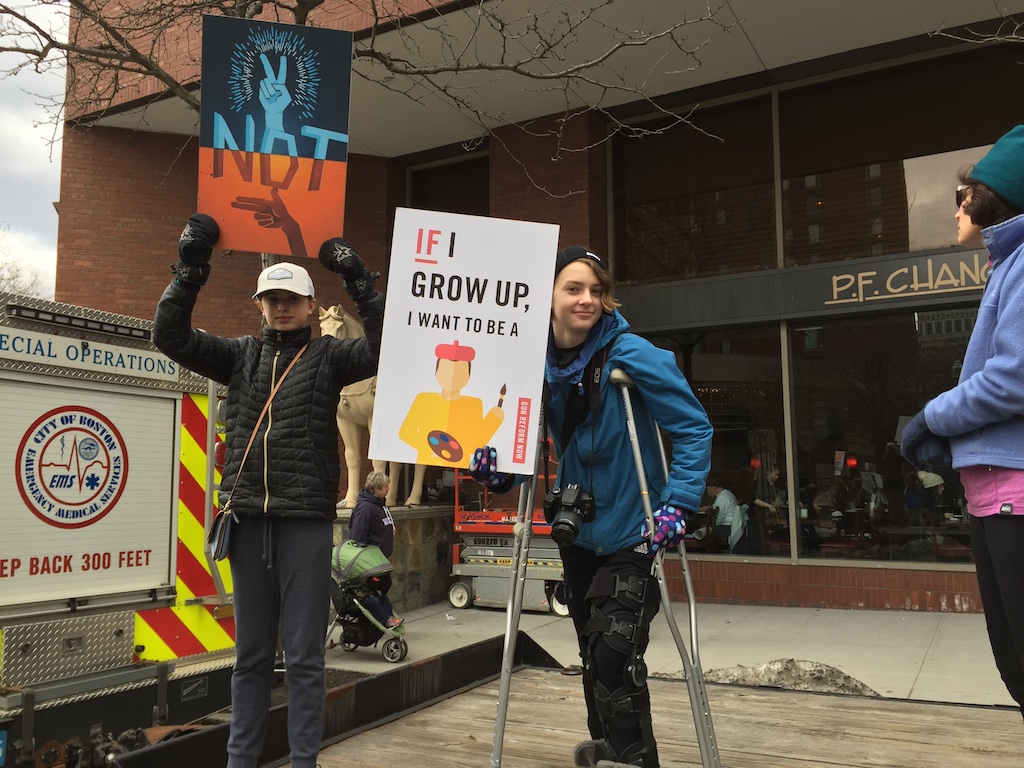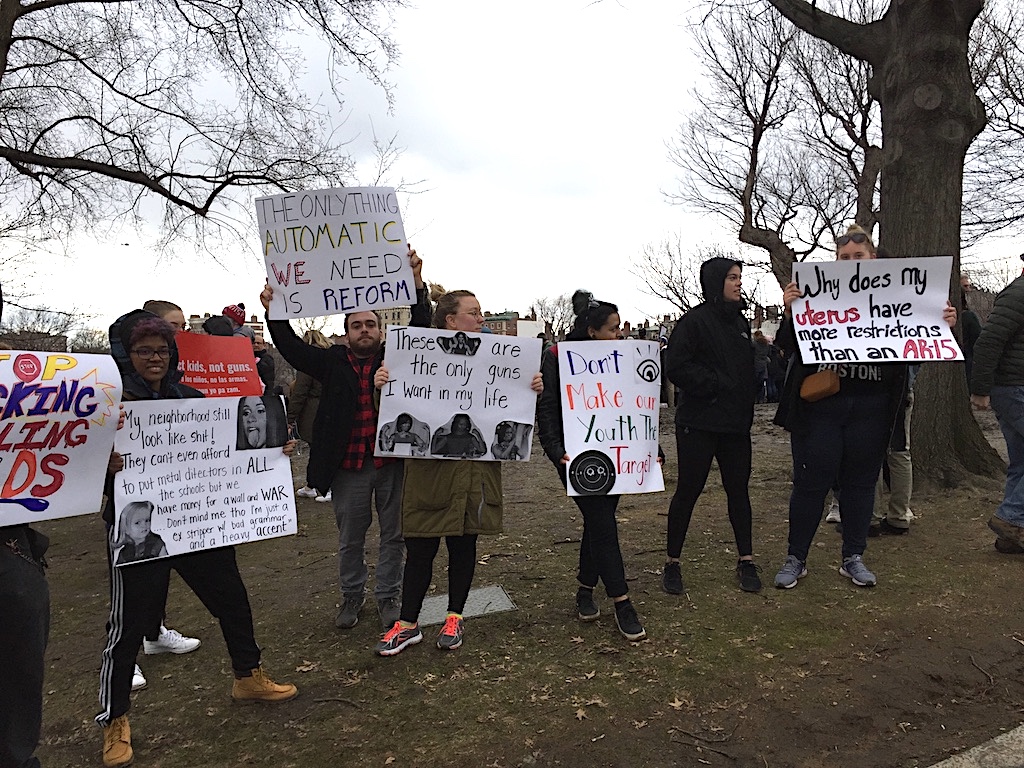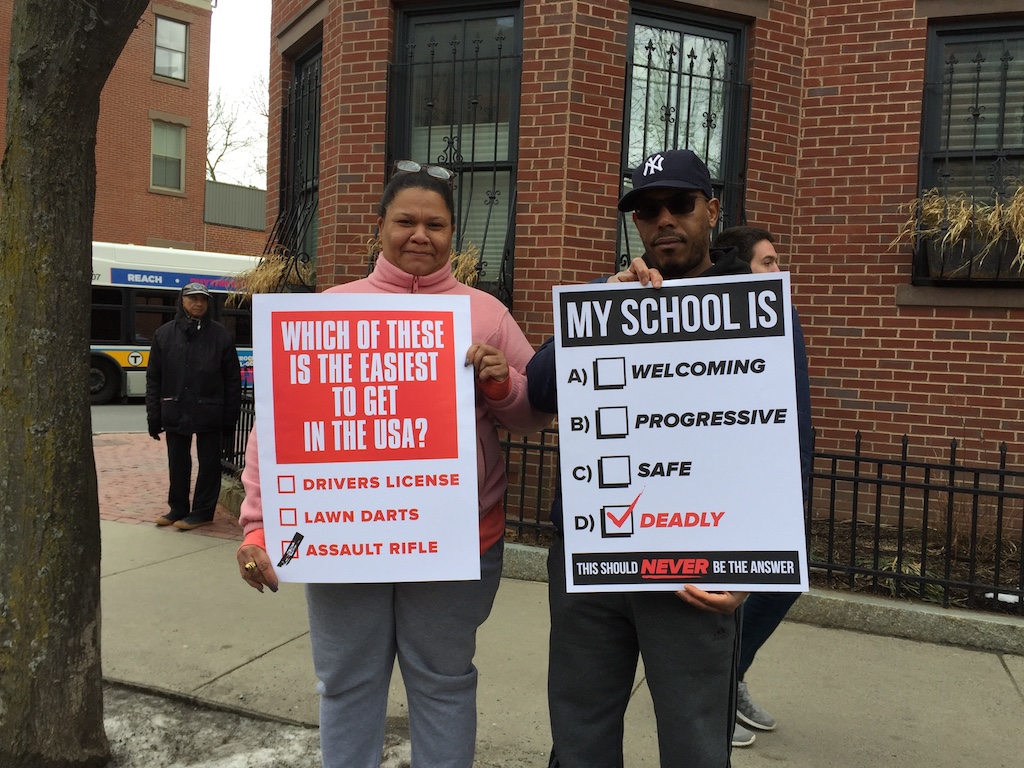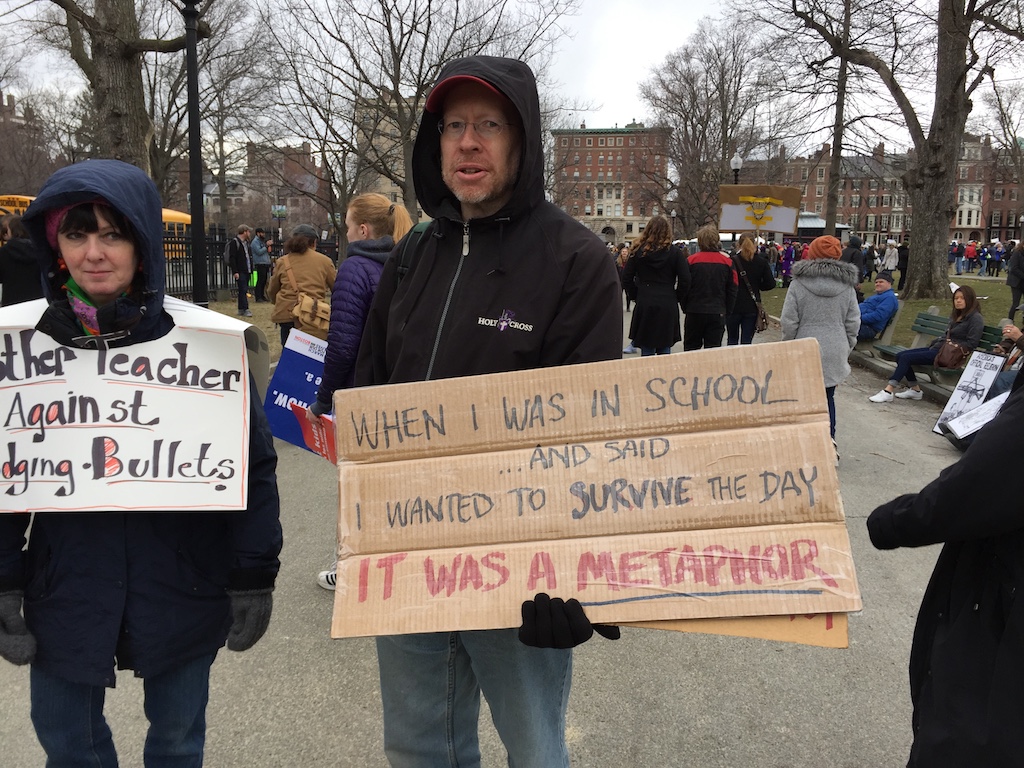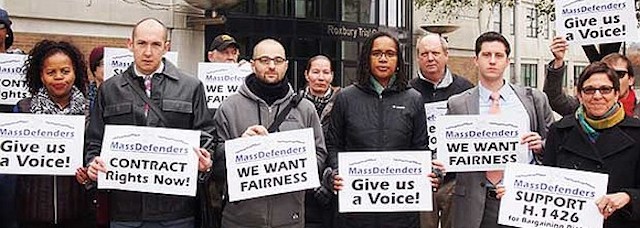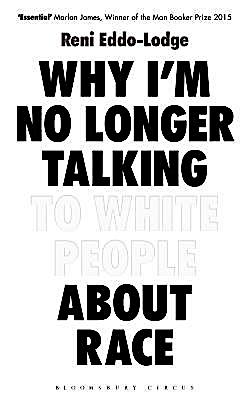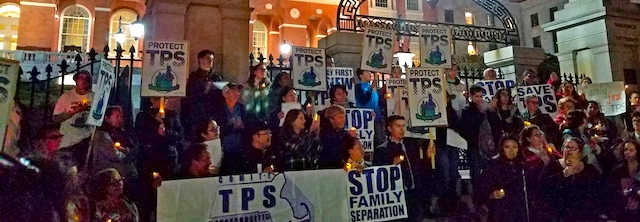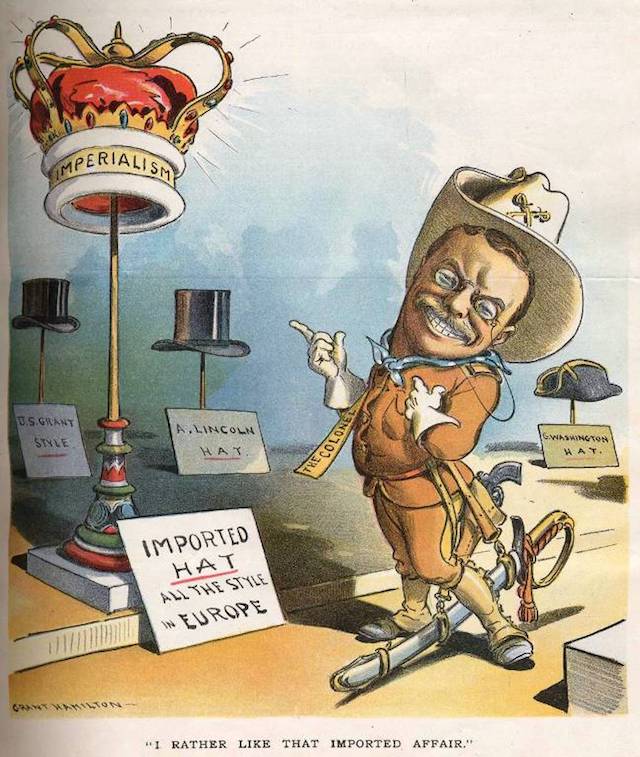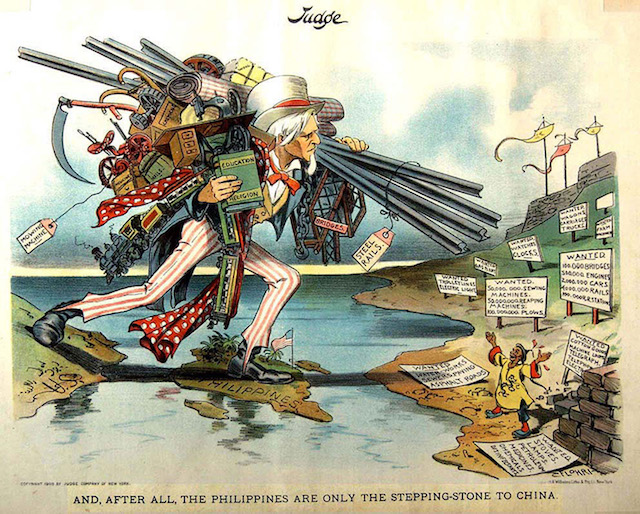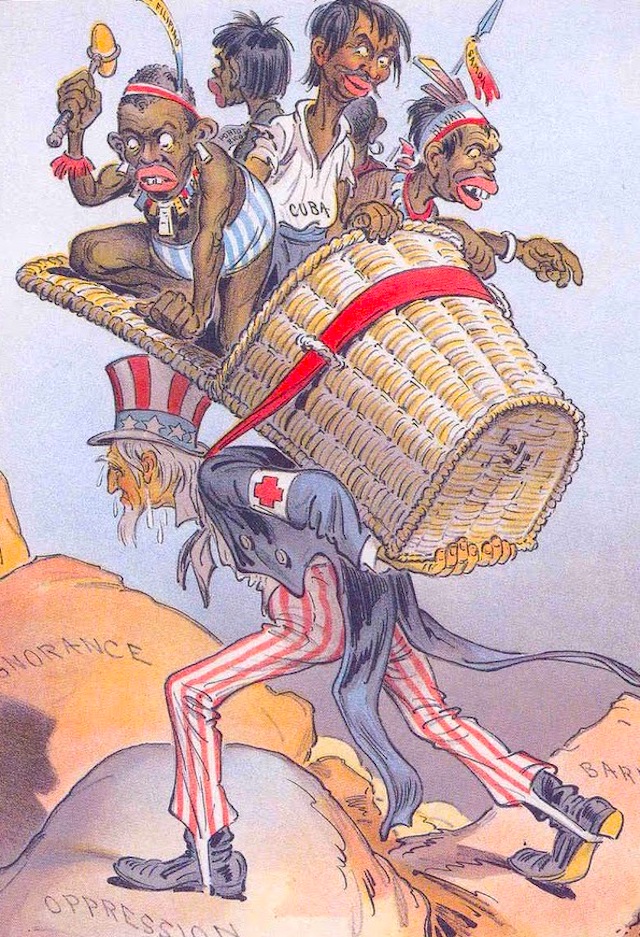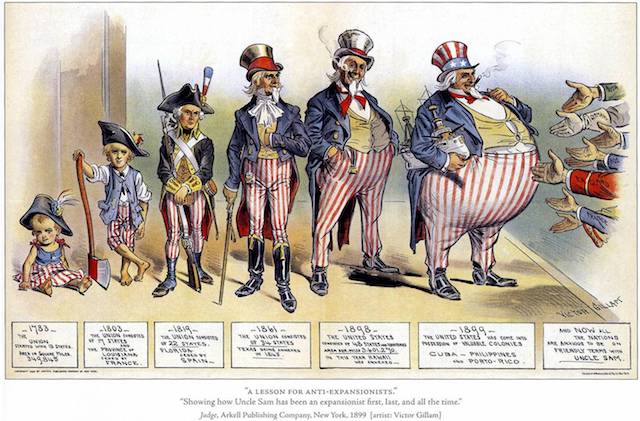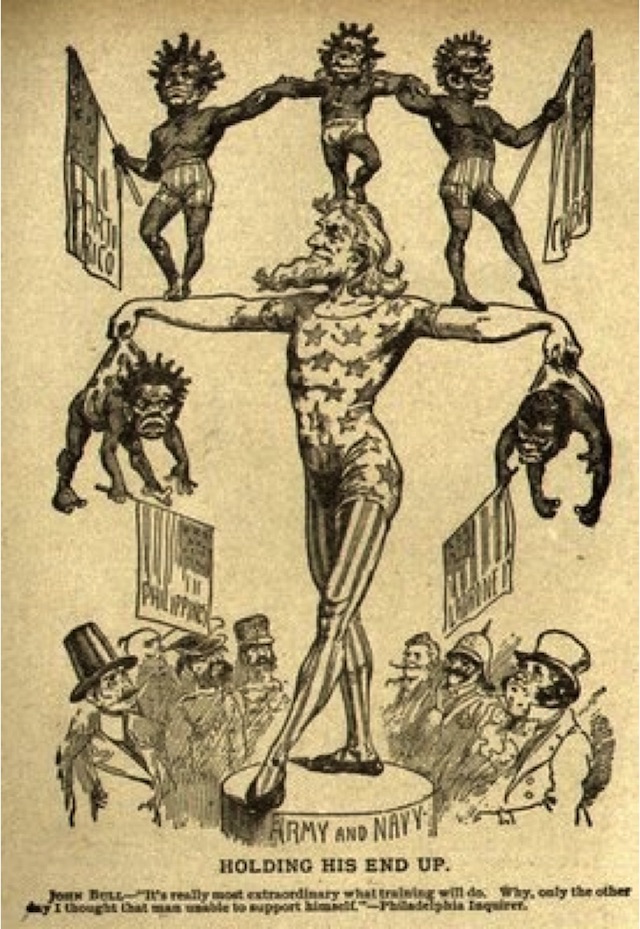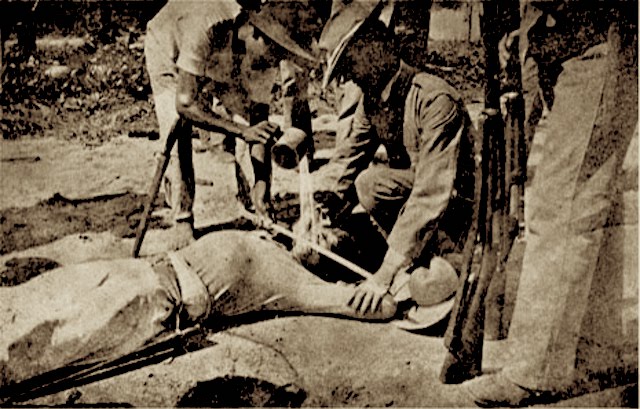
Review of Fantasyland: How America Went Haywire: A 500-Year History by Kurt Andersen
“We risk being the first people in history to have been able to make their illusions so vivid, so persuasive, so ‘realistic’ that they can live in them.” — Daniel Boorstin, “The Image: A Guide to Pseudo-Events in America” (1961).
* * *
Americans are exceptional people. Exceptionally credulous and exceptionally delusional. From homeopathy to Mormonism, Kurt Andersen’s “Fantasyland” is an exploration of home-grown American pathologies that, were they physical, would be pickling in formaldehyde in the Mutter Museum. Though Andersen’s book reads as though we were traveling down strange back roads of American life, the frightening thing is that — quite to the contrary — the odd paths he describes are actually superhighways of American culture.
Nobody emerges unscathed in Andersen’s book. Even Thoreau, the dropout who lived a couple of years in a cabin in the woods near Boston, then spent the rest of his life living with his parents, doesn’t come off smelling much like a flower. I knew that Cotton Mather was a religious fanatic, but I didn’t know he was a trailblazer for Harold Camping, the End Times preacher who (like Mather) repeatedly erred in predicting the date the world would end. Anne Hutchinson, we were taught in school, was an early feminist and the victim of Puritan oppression, and together with Roger Williams was an early champion of religious tolerance. There is even a monument on Beacon Hill naming her a “courageous exponent of civil liberty and religious toleration.” But the truth is, Hutchinson, who claimed to be a prophet, was even more extreme than the Puritan lunatics she followed to the Massachusetts Bay Colony, and they sent her packing. Ultimately, the mother of 15 ended up in what is now Rhode Island, only to be further hounded by Puritans into the wilds of New York (what is now the Bronx). After unwisely settling on Siwonoy land, and after repeated warnings by Siwonoy warriors, she and six of her children were killed in 1643. The Puritans celebrated her death as proper payment for a heretic.
I was unaware that the Southern “Lost Cause” memorialized on Stone Mountain, Georgia and elsewhere was largely inspired by British “chivalric” literature. Andersen quotes Mark Twain, who noted that “the change of character [in the South] can be traced rather more easily to Sir Walter Scott’s influence than to that of any other thing or person. by his single might [he] checks this wave of progress, and even turns it back; sets the world in love with dreams and phantoms; with decayed and swinish forms of religion; […] with the sillinesses and emptinesses, sham grandeurs […] and sham chivalries of a brainless and worthless long-vanished society. He did measureless harm; more real and lasting harm, perhaps, than any other individual that ever wrote […]. It was Sir Walter that made every gentleman in the South a Major or a Colonel, or a General or a Judge, before the war. […] Sir Walter had so large a hand in making Southern characters, as it existed before the war, that he is in great measure responsible for the war.”
The story of Joseph Smith’s home-brew religion is likewise something that could only happen in America. In many ways Mormonism was the predecessor of Scientology, also an American phenomenon. Andersen writes that Joseph Smith was originally a treasure hunter and huckster who eventually concocted a derivative (he uses the word “fan boy”) religion based on “revelations” given to him by the angel Moroni (nowhere to be found in Old or New Testament). Smith, who called himself a prophet and incentivized converts by encouraging men to take multiple wives, was told of golden plates buried, it just so happened, four miles from Smith’s house, containing mysterious scripture that Smith translated himself by sticking his face in a hat in which a “seer stone” had been placed. It is a testament to exceptional American credulity that there are now over six million Mormons in the United States. Protestant Evangelicals, who believe in virgin birth, resurrection, miracles, angels, demons, End Times, the Rapture, and a 6000 year-old world, think Mormons are the nutty ones.
As the 20th Century dawned, America’s fancy turned toward conspiracy. Henry Ford, publisher of the “Dearborn Independent,” printed millions of copies of the “Protocols of the Elders of Zion,” an anti-semitic screed that described a vast Jewish conspiracy to run the entire world. Anarchists and Communists were to be found under every rock and behind every hedgerow. The FBI was founded to root out Jewish Commies. The McCarthy show trials took this to a repressive new level. The Trump administration’s and the right wing media’s QAnon, Birther, immigration, racial and other conspiracies — they’ve all been around a long time. Perhaps it’s just simple rhyme, or maybe it’s poetic irony, but one of Trump’s mentors and lawyers, Roy Cohn, played an important role in the McCarthyite show trials.
Twain’s remarks on chivalric literature’s contribution to Southern myth-making identified one culprit, but the myth-making was just getting started. In 1895, “Wild Bill” Cody, a P.T. Barnum-like figure who had made a fortune putting on racist recreations of Indian massacres, staged a show In Brooklyn called “Black America” in which he hired 500 former slaves to recreate a Southern plantation complete with cotton gin and slave cabins. For two months, Cody’s employees “pretended to be enslaved, picking cotton bolls from a recently planted acre and processing them in a real cotton gin. Tens of thousands of white people watched ‘the labors that the Negroes of slavery days engaged in, and the happy, careless life that they lived in their cabins after work.'” A New York Times article wrote that “a fat black mammy, with a red handkerchief on her head, sits outside one of the little cabins, knitting.” Until prices plummeted in the 1920’s, New England’s wealth depended on the textile industry, and Big Textile’s economic power in turn depended on Southern cotton. North and South, everybody wanted to feel good about slavery.
While all this was going on, a former Tennessee governor was making the national lecture circuit describing the happy life of slaves. “I never shall forget the white-columned mansions rising in cool, spreading groves. And stretching away to the horizon were the cotton fields, alive with the toiling slaves, who, without a single care to burden their hearts, sang as they toiled from early morn till close of day.” As Anderson sums up, “nostalgia had been turned back into a pathology.” But the myth-making continued well into the present. Stone Mountain, D.W. Griffith’s “Birth of a Nation” (which Woodrow Wilson screened at the White House), and monument building continued to push the tale of a noble South. This still resonates with a frightening percentage of Americans in 2019, including many who regard the decommissioning of Confederate monuments as something worth killing over.
Andersen goes on to describe the rise of Christian populism and hucksterism. From the Moody Bible Institute (founded by a former shoe salesman), to Cyrus Schofield (a morally corrupt politician who made a fortune marketing his own bible), to Billy Sunday (who attacked mainstream churches and evolution), the early 20th Century represented American Christianity’s strongest rejection of science and rationalism. In 1925 a quarter of a million people came to Memphis to hear Billy Sunday rail against evolution. Tennessee succumbed immediately and made it “unlawful for any teacher in any of the Universities […] and all other public schools of the State […] to teach any theory that denies the Story of the Divine Creation of man and to teach instead that man has descended from a lower order of animals.” Naturally, this was a slap in the face of the U.S. Constitution, but a slap coming from the “Bread Basket of the Confederacy.” That same year the Scopes “monkey” trial pitted Clarence Darrow (defending teacher John Scopes) against William Jennings Bryant (for the state). After nine whole minutes of deliberation the Tennessee jury found Scopes guilty. A few days later, after returning to Ohio, Jennings Bryant dropped dead. Everybody got something they liked out of the Scopes trial.
H.L. Mencken, while reporting on the trial, made several side-trips to revival meetings and described people speaking in tongues. “Tongues”, writes Andersen. “Mencken had witnessed the defining voodoo artifact of the newest species of fanatical Christianity.” “As grassroots Christian beliefs grew more implausible in opposition to the liberalizing mainstream, some of the grass roots yearned for more implausible and flamboyant Christian practice.” In Topeka, Kansas, bible college operator Charles Parham, who asked students to “forsake all, sell what they had, give it away,” to enter the school, “on the very first day of the twentieth century, this twenty-seven-year-old put his hands on a student, a thirty-year-old woman, and, according to him, ‘a halo seemed to surround her head and face, and she began speaking in the Chinese language and was unable to speak English for three days.'” Whatever Parham was pushing, one might not need to smoke it, but it was seriously strong.
The rise of Hollywood and American marketing and advertising was also uniquely American. Andersen writes that, “my argument here is that movies and then television, and then video-games and video of all kinds were a powerful and unprecedented solvent of the mental barriers between real and surreal — not that that was Hollywood’s explicit intent (although sometimes it was, as in the case of”The Birth of a Nation”).” And Americans love their fantasy.
On October 30, 1938 radio listeners heard the following broadcast, authored by Orson Welles and now known as the “War of the Worlds” — “At twenty minutes before eight, central time, Professor Farrell of the Mount Jennings Observatory, Chicago, Illinois, reports observing several explosions of incandescent gas, occurring at regular intervals on the planet Mars. The spectroscope indicates the gas to be hydrogen and moving towards the earth with enormous velocity. Professor Pierson of the Observatory at Princeton confirms Farrell’s observation, and describes the phenomenon as — quote — like a jet of blue flame shot from a gun — unquote. We now return you to the music of Ramon Raquello, playing for you in the Meridian Room of the Park Plaza Hotel, situated in downtown New York.”
As the broadcast unfolds, the audience is not clear whether they are listening to a radio play with a musical selection — or a real emergency broadcast interrupting it. The announcer returns, interrupting the music once more. “Ladies and gentlemen,” he begins, “I have just been handed a message that came in from Grovers Mill by telephone. Just a moment. At least forty people, including six state troopers lie dead in a field east of the village of Grovers Mill, their bodies burned and distorted beyond all possible recognition. The next voice you hear will be that of Brigadier General Montgomery Smith, commander of the state militia at Trenton, New Jersey.”
Later — “Ladies and gentlemen,” the announcer cuts in. “I have a grave announcement to make. Incredible as it may seem, both the observations of science and the evidence of our eyes lead to the inescapable assumption that those strange beings who landed in the Jersey farmlands tonight are the vanguard of an invading army from the planet Mars. The battle which took place tonight at Grovers Mill has ended in one of the most startling defeats ever suffered by any army in modern times; seven thousand men armed with rifles and machine guns pitted against a single fighting machine of the invaders from Mars. One hundred and twenty known survivors. The rest strewn over the battle area from Grovers Mill to Plainsboro, crushed and trampled to death under the metal feet of the monster, or burned to cinders by its heat ray.”
The result of the “War of the Worlds” was mass hysteria conditioned by a plausible reality. Or, alternatively, it was propaganda to condition a patriotic response to a new political reality. Andersen writes: “In real life during the previous few weeks, the Munich Agreement had been signed and Germany had invaded the Sudetenland: some listeners that night figured the ‘Martians’ bombing and burning America were actually Nazi invaders.” Fantasy could be useful in molding public acceptance for joining a war.
The suburban pastoral fantasy is another uniquely American phenomenon. “Along with America’s extreme passions and knacks for religion and show business, the suburb became yet another fantasy-driven facet of the ‘divergence of the American experience,’ as [Kenneth T.] Jackson writes in”Crabgress Frontier,” ‘from the rest of the world.'” “In fact, the suburb was a twofer, fantasy-wise. Loathing cities had always been a defining American impulse, but as cities rapidly filled up with millions of blacks and Catholics and Jewish and otherwise not-quite-white immigrants, a lot of native-born people found cities even more loathsome. […] Suburbs could also satisfy white people’s nostalgia for a time when they lived almost exclusively among other white (and Christian, and preferably Protestant) people.” The result was White Flight and thousands of versions of Levittown.
Andersen touches on the theme of “nostalgia” over and over again: nostalgia for a lost South; nostalgia for days when slavery gave slaves “carefree” lives; and nostalgia for the days when America was White. If this sounds familiar, perhaps you were here for the 2016 Presidential campaign. But nostalgia leads to viewing the past with heavily tinted (or even fully opaque) glasses. As he recalls his Omaha childhood in the Fifties Andersen is at first tempted to say it was all so “normal.” Instead, he concludes that the Fifties were “freaky and fantastical.” His two reasons for this are television and suburbia. “The Secret Life of Walter Mitty became a box office hit in 1947 by satirizing an American freak who fictionalized himself as a dashing hero, living in his own private dream-world. Yet the new normal — driving in and out of suburban pastoral fantasies, immersing in endless new televised fantasies — was turning all Americans into Walter Mittys without them realizing it.” Add to this the world of advertising that increasingly depended on television, and what Andersen describes is the world portrayed — the irony isn’t lost on me — in the television series “Mad Men.”
No doubt, if the Fifties were anything, they were “fantastical.” Las Vegas, Playboy magazine, Scientology, McCarthyism, newly revived Christian fundamentalism, Reich’s Orgone theory, Disneyland — even the Beat generation, Kerouac and company — all represented uniquely American flights into fantasy. Americans were also embracing drugs as never before. “Burroughs loved his junk, Kerouac his speed, Ginsberg his weed. Regular Americans also discovered and embraced new, legal psychotropic drugs in the 1950’s.” Benzedrine, Dexedrine, tranquilizers, miracle pills. Patent medicines, including heroin, cocaine, and morphene, had been with us all along. Now Americans were buying drugs like candy. Today, despite the “War on Drugs,” we seem to have endorsed the old DuPont motto: “better living through chemistry. Ask your doctor if mind bending drugs are right for you.
During the Fifties mainstream America embraced the Christian fundamentalism that H.L. Menken and secularists had once mocked. Twenty-five year-old Billy Graham started off as a radio preacher, then took his show — “Youth for Christ” — on the road. Soon the road became the Rose Bowl, and before long Graham was in Hollywood where “dreams could come true on streets of gold and a zillion corrupted sinners needed saving.” Signs at Graham’s L.A. Revival Meeting told the masses to “come and expect a miracle” in the Holy Ghost Miracle Tent. Before long Graham was praying with Harry Truman in the Oval Office and attending Eisenhower’s inauguration. Graham attended the first National Prayer Breakfast and Eisenhower’s “born again” baptism. In 1950 “In God We Trust” was added to America’s motto –the Founders had never thought to invite God into government while explicitly separating Church and State.
Besides Graham, Norman Vincent Peale was also an influential religious figure of the time, publishing books like “The Power of Positive Thinking.” “Peale mass-marketed two strains of though that had wormed their way into American Christianity since 1900: magical thinking about wealth and success […] and see no evil, hear no evil, speak no evil as practical means of getting there. Lots of prominent Protestant theologians hated”The Power of Positive Thinking” — it was egocentric, materialistic, and escapist, a cult. Billy Graham loved it.” Fast forward to 2019 and Evangelicals have embraced “prosperity theology” while giving their leaders a “mulligan” on personal morality. In another rhyme of history, Billy Graham’s son Franklin now champions the cult of a corrupt and dissolute president who excels in being egocentric and materialistic.
Andersen also has much to say about New Agers, Back to Earth believers, New Medical Quackery, the Internet, Virtual Reality, AI, Eternal Youth, American Exceptionalism, Cryogenic life extension, the X-Files and people who believe it, hoaxes, urban myths, populism, anti-Vaxxers, gun nuts, survivalists, Flat Earthers, climate deniers, moon landing conspiracy believers, and the World Wrestling Federation.
Though the destinations are different, all of us seem to be traveling the same roads.













